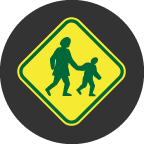 On-the-Go Activities
On-the-Go Activities
-

- Activity Title
- ?
Topic or Theme
Identifying letters in a child's name and listen to ABC (The Alphabet Song)

-
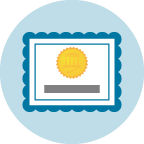

First Name
Brief description of activity or summary of tasks and/or materials used.
-

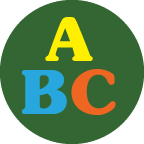
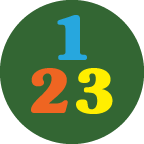
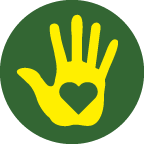

-
- Surprise
- 26
Fingerplay "Five Little Ducks"
Act out Five Little Ducks
-

Fingerplay "Five Little Ducks"
Act out Five Little Ducks
-


-
- Target Words
- 14
Day, Later, Night, Now
Observing the sky to learn target words
-

Day, Later, Night, Now
Observing the sky to learn target words
-


-
- Target Words
- 15
Good-By, Many, Match, Why
Asking why?
-

Good-By, Many, Match, Why
Asking why?
-


-
- Surprise
- 26
The Alphabet
Developing performance skills with fingerplay/song "The Alphabet Song"
-

The Alphabet
Developing performance skills with fingerplay/song "The Alphabet Song"
-



-
- Physical Activity
- 21
"One Hammer" Fingerplay (Fine Motor)
Using a fingerplay for active play
-

"One Hammer" Fingerplay (Fine Motor)
Using a fingerplay for active play
-



-
- Character Traits
- 13
Confidence
Building confidence - special talents
-

Confidence
Building confidence - special talents
-


-
- Target Words
- 14
Target Words - In, Out, Empty, Full
Understanding the words "in" and "out" by singing “Hokey Pokey”
-

Target Words - In, Out, Empty, Full
Understanding the words "in" and "out" by singing “Hokey Pokey”
-



-
- Numbers
- 07
Review #1-4
Thinking about Numbers
-

Review #1-4
Thinking about Numbers
-



-
- Physical Activity
- 21
Finger Play "The Itsy Bitsy Spider" (Fine motor)
Practicing finger dexterity with hand motions
-

Finger Play "The Itsy Bitsy Spider" (Fine motor)
Practicing finger dexterity with hand motions
-


-
- Shapes
- 03
Review
Fun shape game that can be played anywhere
-

Review
Fun shape game that can be played anywhere
-



-
- Target Words
- 15
Goodnight, Sweet, Sour, Next
Learning the meaning of "next"
-

Goodnight, Sweet, Sour, Next
Learning the meaning of "next"
-


-
- Surprise
- 26
Color Fingerplay
Memorization of "Way Up High In The Apple Tree" and target word high
-

Color Fingerplay
Memorization of "Way Up High In The Apple Tree" and target word high
-



-
- Character Traits
- 13
Honesty
Finger play "I Need To Be Honest"
-

Honesty
Finger play "I Need To Be Honest"
-




-
- Target Words
- 14
Target Words
Finger play "Up Down Turn Around"; use previous target words Up and Down and introduce Good-bye
-

Target Words
Finger play "Up Down Turn Around"; use previous target words Up and Down and introduce Good-bye
-



-
- Character Traits
- 12
Confidence
Building confidence in a child
-

Confidence
Building confidence in a child
-

Activity Skills Focus
1 Social / Emotional Skills
Skills that develop children’s ability to understand the emotions of others and help children recognize and use appropriate social behaviors (for example, making friends). In the Department of Education report “Guiding Principles A Resource Guide for Improving School Climate of January 2014 it states “strategies such as social-emotional learning programs that address non-cognitive skills, including problem-solving, responsibility and resiliency, can also help students develop the skills needed to fully engage and thrive in the learning environment.”
2 Language Skills
Skills that help children understand and communicate during early childhood. The alphabetic principle (knowing letter names and sound-letter matches) aids in language development and is enriched by verbal interactions with other children and adults (reading aloud and engaging in conversation).
View all Language Skills Activities
3 Math / Science Skills
Math and Science skills help children with problem-solving and reasoning. Exploring numbers, patterns, and measurements by using math manipulatives (beads, counters, pennies) are all ways children develop their math skills. Asking questions about their surroundings, learning a science vocabulary (predict, observe), and having hands-on experiences with their environment can help develop their science skills.
4 Motor Skills
Motor skills are actions that involve the movement of muscles in the body. They are divided into three groups:
1. gross motor skills, which are the larger movements of arms, legs, feet, or the entire body (crawling, running, and jumping)
2. fine motor skills, which are smaller actions, such as grasping an object between the thumb and a finger (pencils or scissors)
3. sensorimotor skills which use the five senses to guide physical motions as in eye-hand coordination.
View all Motor Skills Activities
5 Problem Solving Skills
Skills that help with the construction of thought processes, including memory, problem-solving, and decision-making.
